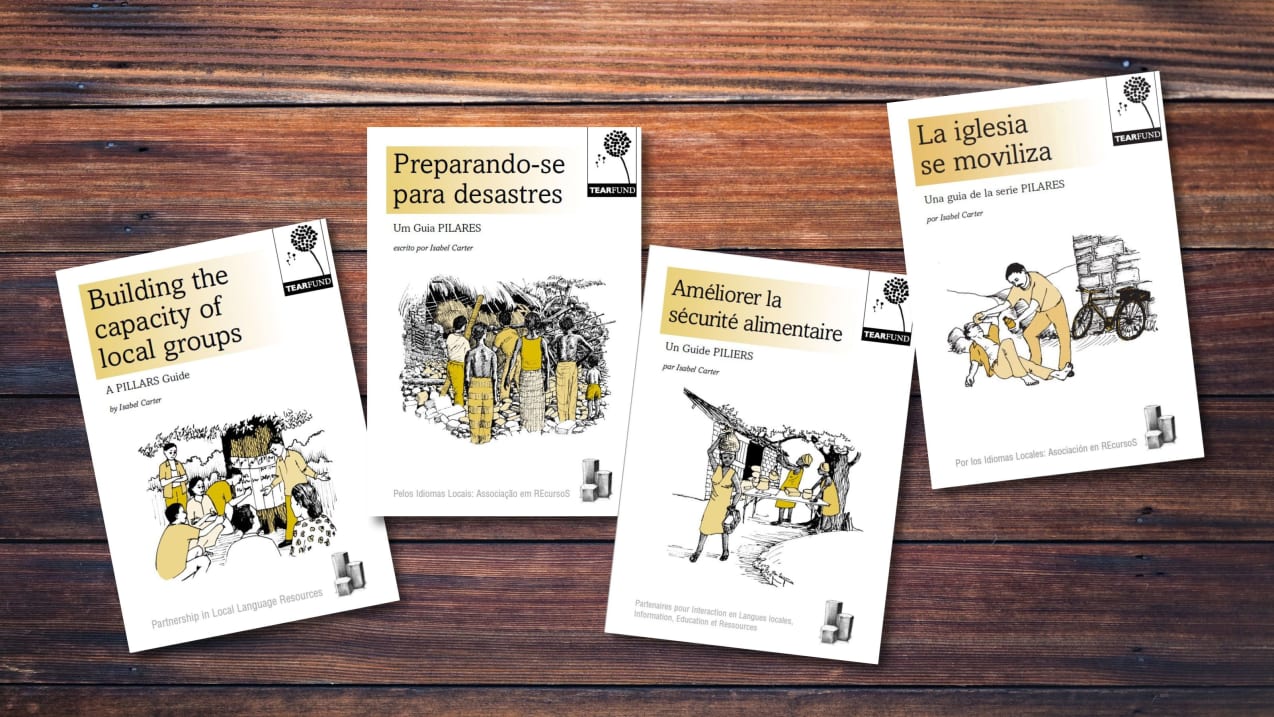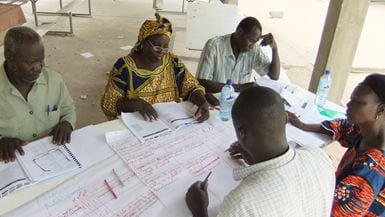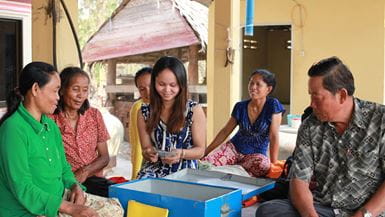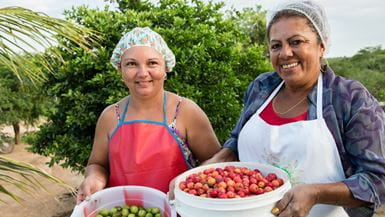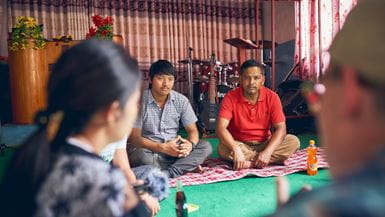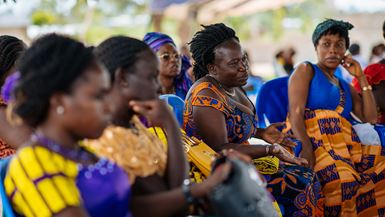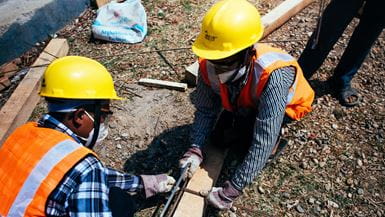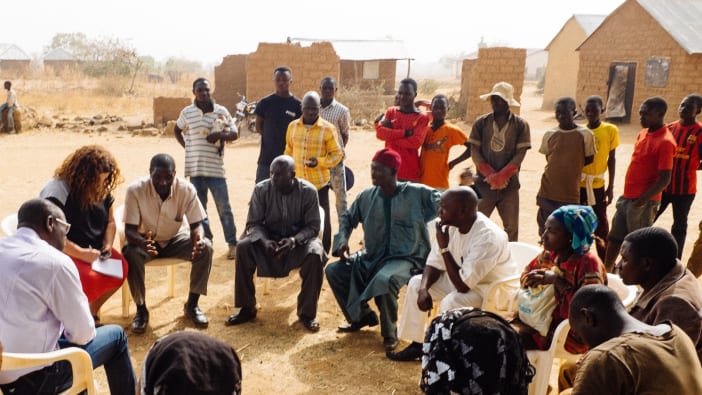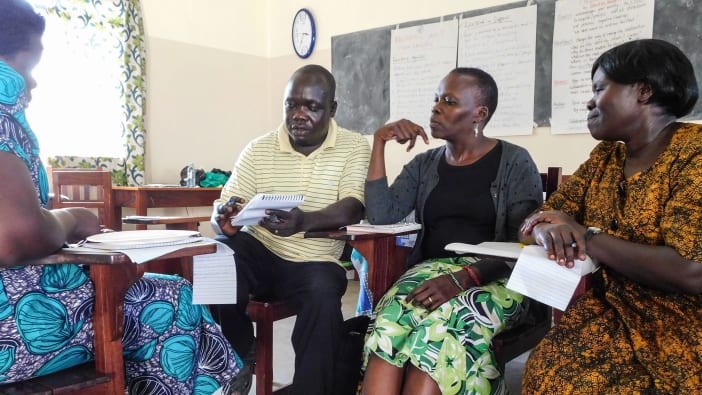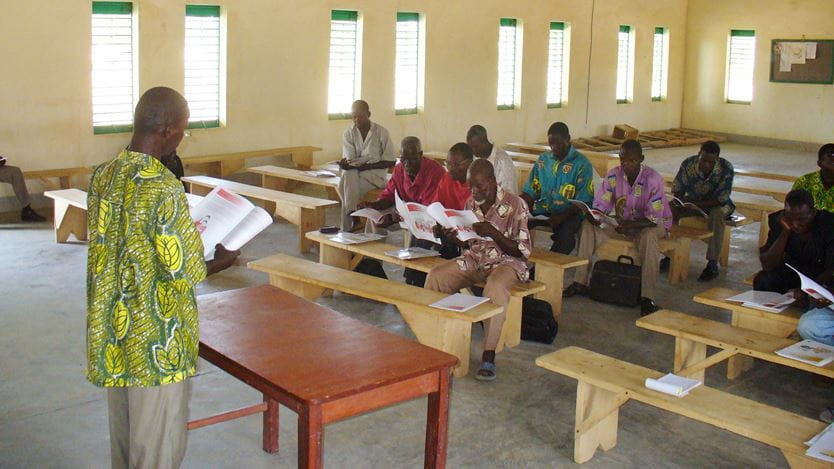About Pillars
Pillars guides provide practical, discussion-based learning on community development. The guides are designed for use in small community groups such as youth groups, church groups, women’s groups, farmer groups and literacy groups.
A trained leader is not required, just one literate person. That person, often an existing member of the group, acts as the facilitator, and leads the group in discussions and activities based on the Pillars guides.
The Pillars approach combines reading with listening, talking and taking action, to reinforce learning and to make the information accessible to people with different learning preferences and little educational background.
At the back of each guide are a number of related Bible studies.


